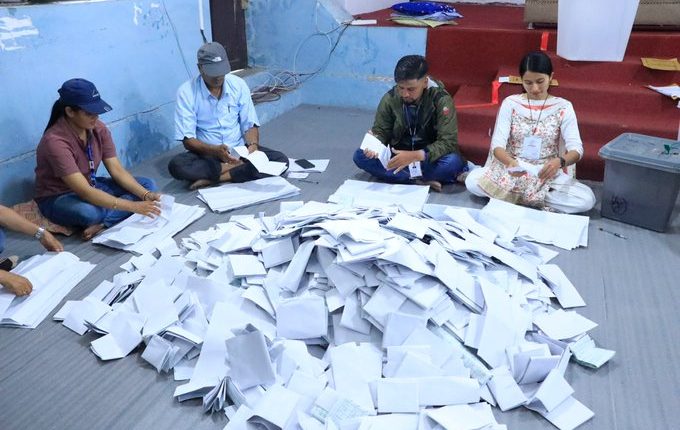Nepal Elections 2022 Results: Nepali Congress leading in 32 constituencies, while CPN-UML led by K P Sharma Oli is leading in 17 constituencies
Kathmandu: The ruling Nepali Congress (NC), which has so far won in one constituency, is leading in 32 constituencies, while CPN-UML led by former prime minister K P Sharma Oli is leading in 17 constituencies.
RSP is leading in 7 constituencies, while the Rastriya Prajatantra Party has the lead in 5 constituencies and CPN-Maoist Centre in 4 constituencies respectively.
Similarly, CPN-Unified Socialist is leading in 4 constituencies, followed by Janamat Party in 2 constituencies and Lokatantrik Samajwadi Party and Hamro Nepal Party in one constituency each.
The Rastriya Swatantra Party, floated by a former television personality, has emerged as the dark horse in the Nepal elections, coming third behind heavyweights like the Nepali Congress and the CPN-UML, and leading in seven constituencies.
Meanwhile, Prime Minister Sher Bahadur Deuba has bagged 463 out of the 1,000 votes counted so far in Dadeldhura district, from where he is contesting elections to the House of Representatives.Mr. Deuba’s nearest rival, the 31-year-old engineer Sagar Dhakal, has received 241 votes. Mr. Deuba, 76, was elected from Dadeldhura constituency on six occasions and has never lost an election.
The counting started at 7 am local time and will continue till 5 pm, a day after about 61 per cent polling was recorded across the Himalayan nation. The polling began on Sunday at 7 am local time at over 22,000 polling centres and closed at 5 pm. The voter turnout was significantly lower as compared to the past two elections – 77 per cent in 2013, and 78 per cent in 2017. More than 17.9 million voters were eligible to cast their votes to elect a 275-member House of Representatives and provincial assemblies. Out of a total of 275 Members of Parliament, 165 will be elected through direct voting, while the remaining 110 will be elected through a proportional electoral system. Voters also voted to elect representatives to seven provincial assemblies. Out of a total of 550 members of the provincial assemblies, 330 will be elected directly and 220 will be elected through the proportional method. There are two major political alliances contesting the polls — the ruling Nepali Congress-led democratic and leftist alliance and the CPN-UML-led leftist and pro-Hindu, pro-monarchy alliance. Nepali Congress led by Prime Minister Deuba, 76, has formed an electoral alliance with former Maoist guerrilla leader ‘Prachanda’, 67, against former premier Oli, 70. The Nepali Congress-led ruling alliance includes CPN-Maoist Centre, CPN-Unified Socialist, and Madhes-based Loktantrik Samajwadi Party while the CPN-UML-led alliance includes pro-Hindu Rashtriya Prajatantra Party and Madhes-based Janata Samajwadi Party.


Comments are closed.